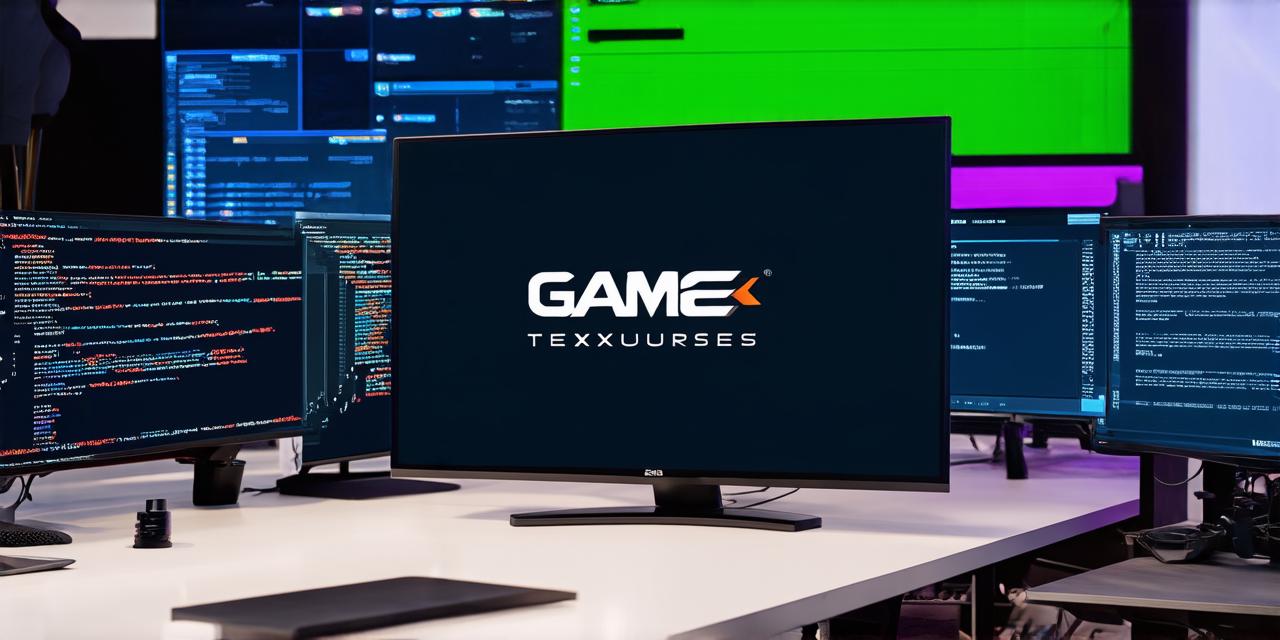
Game development has been a growing industry for several decades, with the rise of video games and digital platforms. The process of creating a game involves various aspects of computer science, art, and design, and requires a diverse set of skills and knowledge.
1. Programming Languages:
Programming languages are the backbone of any game. Game developers need to be proficient in at least one programming language to create games. Some popular programming languages used in game development include C++, Java, Python, and Unity Script. Each language has its strengths and weaknesses, and game developers must choose the right language for their project.
For example, C++ is a powerful language that is commonly used in game development due to its speed and memory management capabilities, while Python is often used for scripting and prototyping.
2. Math and Physics:
Math and physics play a crucial role in game development. Game developers need to have a good understanding of concepts such as trigonometry, calculus, and linear algebra to create realistic simulations of physical phenomena. They also need to know how to apply these principles to create compelling gameplay mechanics.
For example, a game developer working on a racing game needs to understand the physics of movement, such as acceleration, deceleration, and friction, to create a realistic driving experience.
3. Art and Design:
Art and design are essential components of game development. Game developers must have a strong understanding of visual communication, color theory, and composition to create visually appealing games. They also need to be able to work with artists and designers to bring their vision to life.
For example, a game developer working on an adventure game needs to understand the principles of storytelling and character design to create an engaging narrative and memorable characters
4. Psychology and Player Experience:
Psychology and player experience are becoming increasingly important in game development. Game developers must understand how players behave and what motivates them to keep playing. By studying psychology, game developers can create more engaging and immersive games that keep players coming back for more.
For example, a game developer working on a puzzle game needs to understand the psychology of problem-solving and how to design puzzles that challenge players without frustrating them
5. Marketing and Sales:
Marketing and sales are critical components of the game development process. Game developers need to be able to market their games effectively to reach their target audience. They also need to understand how to price their games to maximize profits while maintaining player satisfaction.
For example, a game developer working on a sports game needs to understand the target audience and how to market the game to appeal to that audience
6. Business Management:
Business management is another essential aspect of game development. Game developers need to be able to manage resources, budgets, and timelines to ensure that their projects are completed on time and within budget. They also need to understand the legal and financial aspects of game development, such as copyright law and taxation.
For example, a game developer working on a mobile game needs to understand the business model and how to monetize the game through in-app purchases or advertising
7. Collaborative Skills:
Game development is a collaborative process that requires strong communication and teamwork skills. Game developers must be able to work with artists, designers, programmers, and other stakeholders to bring their vision to life. They also need to be able to give and receive constructive feedback to improve the final product.
For example, a game developer working on a multiplayer game needs to understand how to coordinate with other team members to ensure that the game is balanced and fun for all players
8. Continuous Learning:
Game development is a rapidly evolving field that requires continuous learning and adaptation. Game developers must stay up-to-date with the latest technologies, trends, and best practices in their field. They also need to be willing to learn from others and seek feedback to improve their skills.
For example, a game developer working on a virtual reality game needs to understand the latest VR technologies and how to design games that take advantage of those technologies
In conclusion, game development requires a diverse set of skills and knowledge. To become an expert in this field, game developers must study programming languages, math and physics, art and design, psychology and player experience, marketing and sales, business management, collaborative skills, and continuous learning. By mastering these skills, game developers can create engaging and immersive games that captivate players around the world.




